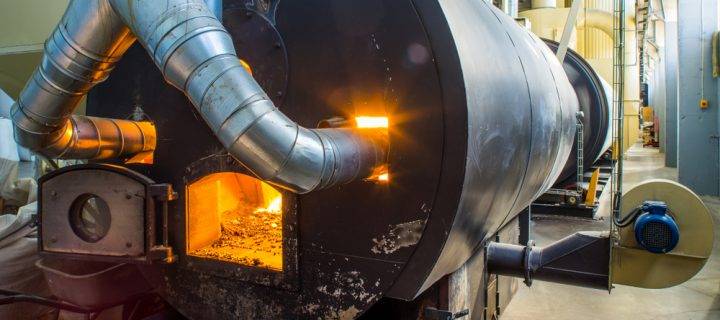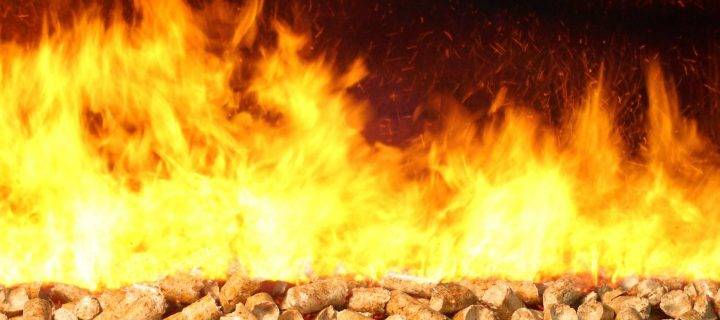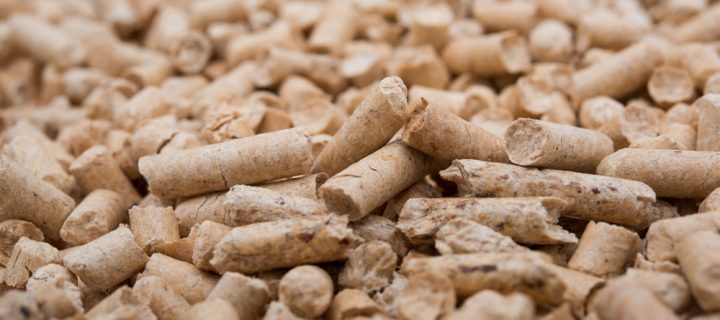Weight loss for horses and ponies can be difficult, with a number of factors making it a challenging task. Restricting the feed intake of an animal that spends most of its time eating can lead to colic and gastric ulcers; the key to success is a balance of feed intake with calorie restriction. Here at P.H Winterton, we understand the importance of keeping your horse healthy, which is why we only supply the finest equine bedding. For this blog, we are going to give you some tips to help avoid equine obesity. Tips to Avoid Equine Obesity Weighing Your Horse Regularly checking your horse’s body weight helps you to keep an eye on their waistline and allows you to address any issues sooner rather than later. Combine weigh taping with body condition scoring which helps to determine your horse’s ideal condition. If you cannot easily feel your horse’s ribs, they are overweight. Weigh Your Horse Feed It can be easy for feeding portions to creep up without you noticing, especially when feed is distributed in scoops. Not all horse feeds are equal in weight, so it is crucial to know how much your scoop holds. Knowing how much you feed your horse, including forage, means you can start a dieting regime that does not instantly change their feed amount. For dieting horses and ponies, you will need to gradually restrict their intake to 1.5% of their current body weight. Avoid Extras In Your Horse Feed If you are the owner of an overweight horse or pony, you will need to assess whether they need extra little bits of mix and cubes in their feed. These extras provide a number of calories, whereas it could be far better to provide something that has a longer chewing time, to help with behavioural and digestive health. One of the additional issues of adding sprinkles of mix or cubes is your horse will be missing out on vital vitamins and minerals. An alternative that would make your horse’s feed more appealing would be a feed balancer. Think About Forage In some instances, haylage provides too many calories and if your yard provides it as the sole forage source you need to consider an...
Read Moreabout How to Deal With Equine ObesityWhen installing a biomass fuel boiler, the tradesperson carrying out the task can advise you on the best boiler for your home and requirements. Each different renewable heating system has its own benefits so it can be tricky to have a definitive answer. When it comes to your average biomass boiler you will want something similar to your existing system, with the changes being more practical and not necessarily noticeable. To achieve the desired outcome, there are a number of factors to take into consideration, which we have listed below. 3 Factors to Consider for Biomass Fuel Boilers Size – Wood chip boilers often take up the most room, making them suitable for larger properties. However, pellet boilers can occupy less space because of their smaller size but are still able to heat a room just as effectively. If you are looking to install a renewable heating system, you will probably need an average-sized biomass boiler that won’t feel cramped in the space. They are slightly larger than their gas and oil counterparts but with further developments of wood pellet boilers, they are fast becoming a more popular heating option for modern homes. Cost – The prices of biomass boilers varies, depending on whether you want a larger system or a more cost-effective domestic one. Automatic and semi-automatic fed boilers typically cost more than manually fed versions, such as a log boiler. The cost of running a biomass boiler centre around the fuel type used, as maintenance costs do not really differ. Buying bulk pellets (from a supplier such as P.H Winterton) is the most cost-effective and allows for quality heating which is far cheaper than the costs of a traditional boiler. It is also worth considering that you can recover a percentage of your up-front expenses through the Renewable Heating Incentive, which earns you money for using a renewable heating system. Efficiency – Biomass heating systems have an efficiency of 80% or above, making them regularly more efficient than a standard gas boiler. Other factors to consider is the existing heat flow and insulation in your home plus the size of the space being heated. For the most efficient renewable heating system, P.H Winterton would recommend using wood...
Read Moreabout What Type of Biomass Fuel Boiler Should I Install?It is completely up to you how you implement any heating system (such as a biomass fuel boiler) in your home or business, but there are particular integrated systems that help to get the best out of them. Biomass boilers are one of the best renewable heating systems and are able to provide a reliable heating source all year round. It is important to clarify the uses of this system with regards to your heat demands. For our latest post, P.H Winterton will compare the different biomass fuel heating systems. Comparing Biomass Fuel Heating Systems Part of Integrated/Hybrid Heating System – A great way to guarantee powerful heating, is to implement an integrated or hybrid heating system. This allows for the use of a traditional boiler alongside a renewable source which creates a synergy for the best heating possible. The traditional heating acts as a backup if the renewable heating source is underperforming, meaning you can switch between them for optimal warmth. Biomass boilers are not frequently used this way, but if it is possible in the property it could be an option. Using with Another Renewable Heating System – This a great way to be fossil fuel-free, with a boiler working with a system such as an air-source heat pump to have fully renewable heating sources around your home. This dual system will make use of both sources, switching between whichever is most useful. Standalone Heating System – One big advantage of biomass boilers is that they are incredibly useful on their own, creating enough heat all year round without any real drop off during winter. When compared to other renewable heating systems this is crucial. It is possible that in many cases to completely replace the conventional system already in place and use this replacement and still have sufficient heating. You will also be lowering your environmental impact and can earn money back through the Renewable Heating Initiative (RHI). It is hard to argue against biomass boilers, as they are arguably the best renewable heating system of recent years. There are plenty of benefits such as carbon neutral heating and cheaper running costs when compared to standard boilers. If you are thinking about making the switch to...
Read Moreabout Can Biomass Fuel Boilers Be Used on their Own?If you are considering a biomass fuel boiler, you will probably know that it will need more maintenance than a regular gas boiler. A gas boiler needs to be assessed by an engineer every year, but a biomass boiler needs more regular care. Although most of the tasks are pretty straight forward, it is worth considering before committing to the extra time and effort. P.H Winterton and Son are of the Government-approved biomass suppliers, with our wood pellets used by customers all over the country. For this blog, we will talk you through the maintenance of biomass boilers. Attention to Detail Needed for Biomass Fuel Boilers The amount of attention needed for your boiler will ultimately depend on the model and type of fuel you use. Wood logs, chips and pellets all burn differently and create varying amounts of waste. Some high-end biomass boilers have extra features which mean that they can look after themselves (to an extent). To keep the system running efficiently and to make sure you have a decent return on investment, it is crucial to provide sufficient maintenance. Here are some points to consider – Daily – A visual inspection and cleaning of any components where needed Weekly – Check the ash level and empty if needed and check gear motors for oil leaks Monthly – Scrape the combustion chamber, removing any bad ash and checking the grate Every 3 Months – Wipe the flue gas sensor and clean the lambda probe and check the grate Every 6 Months – Check and clean the flue gas return, inspect the operational drives, check the motors, clean the heat exchangers and clean the combustion chamber Annually – This check will usually be carried out by your installer. Tasks include multiple checks plus cleaning the flue and greasing the bearings Get in Touch for More Information If you have any questions about biomass fuel boilers, please do not hesitate to contact P.H Winterton today. We are the leading provider of equine bedding for customers across Staffordshire, Cheshire and...
Read Moreabout Understanding Biomass Fuel Boiler MaintenanceWith sustainable fuels becoming more and more prevalent, it’s the perfect time to consider the benefits of using biomass fuel. Last week, we saw the government announce that algae, alcohol and household waste would power RAF fighter jets under the Ministry of Defence’s plan to slash carbon emissions. Along with the government’s plans to ban petrol and diesel cars by 2030, it seems that alternative fuel sources are the future. Therefore, we thought that we would look at five benefits of biofuel in our latest blog post. Less Greenhouse Gases It’s the obvious one, we know. However, it’s also one of the most important reasons that people tend to switch. Even though biofuels still emit some greenhouse gases, it’s much less than your traditional fuels. In fact, thanks to photosynthesis, biomass fuels only release the same amount of carbon into the atmosphere as was absorbed by plants in the course of their life cycle. This means that it is considered as CO2 neutral. If there are less greenhouse gases in the air, then we could slow the effects of global warming. Renewable Source of Energy One of the most important factors surrounding biomass fuel is that it’s a renewable source. This means that we can replace it as we use it, leading to an endless supply. Farmers can dedicate land to growing crops that will be intended for use as biofuel. This is a much better alternative to draining the Earth of it’s oils and natural gases which are all non-renewable sources of energy. More Cost Effective A lot of this comes down to the process of sourcing and producing the fuel. For fossil fuels, sourcing them requires drills, gas pipelines and fuel collection. However, the machinery needed to produce biomass fuel is much less expensive. These overheads are naturally reflected in the price of the product. Less Waste Polluting The Environment By giving this waste another purpose, you’re preventing it from being dumped in a landfill somewhere. Littering and the usage of non-degradable materials is unfortunately rife. Therefore, where there is an opportunity to re-use other materials, we should definitely try to. By working with P.H. Winterton and Son to get sawmill waste collections, you’re helping to save...
Read Moreabout Five Benefits Of Switching to Biomass Fuel



